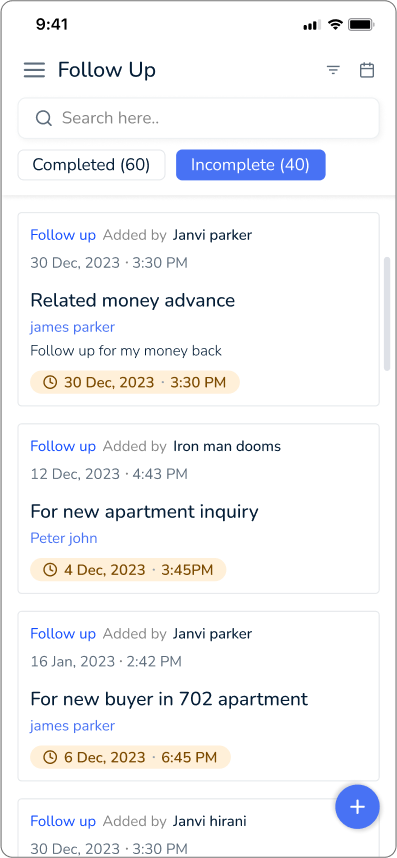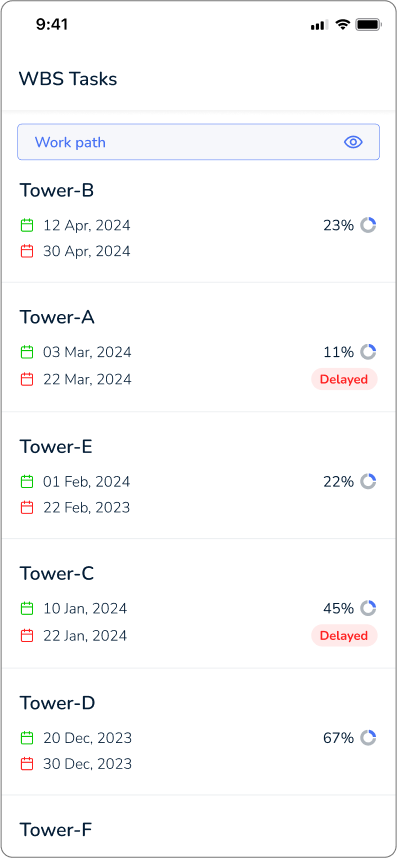
The real estate industry, being highly dependent on the overall state of the economy, is experiencing significant challenges during this recession. Both residential and commercial sectors are being affected. One major issue is the decline in demand for housing. With people losing their jobs or facing financial uncertainty, the demand for new homes has decreased. This leads to a surplus of unsold properties, causing prices to decline. Additionally, potential buyers are finding it harder to secure loans or mortgages, further dampening the real estate market.
In the commercial sector, businesses are struggling to survive, leading to a decrease in demand for office spaces, retail spaces, and industrial properties. Many companies are downsizing, laying off employees, or closing down completely. This not only affects commercial property owners but also impacts the overall economy.
In construction sector many projects have been put on hold or canceled due to financial constraints. This has a ripple effect on various industries and job opportunities, causing widespread economic distress. Developers and builders have also faced challenges in obtaining financing for real estate projects. Banks and financial institutions have become cautious in lending, leading to delays or cancellations of construction projects.
The real estate industry is trying to respond to these challenges by adopting measures such as digital marketing, construction project management software, virtual property tours, and flexible payment options. Developers are focusing on completing existing projects rather than launching new ones, to conserve resources.
5 proven strategies to recession-proof your business
Instead of resorting to knee-jerk reactions like layoffs, businesses should consider how embracing technology can help them navigate tough economic times. Technology can help streamline processes, reduce costs, and improve efficiency, ultimately ensuring the survival and success of the business.
Many ERP software are made for construction industry that allows businesses to automate tasks, saving both time and money. Repetitive and mundane tasks can be handled by machines or software, freeing up employees to focus on more important and strategic work. This not only reduces costs associated with labor but also increases productivity.
Technology can also facilitate remote work, enabling businesses to remain operational even when physical offices are closed or inaccessible. During a recession or economic crisis, businesses can continue to operate with employees working from home, minimizing disruptions and maintaining productivity.
Moreover, Construction ERP Software provides valuable data and analytics that can help businesses make informed decisions. By analyzing market trends, customer behavior, and other relevant data, businesses can identify areas of opportunity and make informed decisions. make strategic adjustments to their operations. This data-driven approach can help businesses stay ahead of the competition and weather economic downturns.
Here are 5 tips to make your real estate business stand still through changing economic climates:
Avoid Unnecessary Spending and Financial Risks
To safeguard your real estate business from economic downturn, it is important to refrain from unnecessary expenditures. It is now more imperative than ever to effectively manage your budget. Here are tips to avoid unnecessary spending and optimize budget management in your real estate business:
- Review and analyze expenses regularly: Take a closer look at all expenses and identify areas where you can cut back without impacting your operations or client experience. This can include reducing discretionary spending or finding more cost-effective solutions for recurring expenses.
- Prioritize essential expenses: Identify the essential expenses that are critical to the functioning of your business and prioritize them. Allocate your budget to these necessities first, and then consider other expenses based on available funds.
- Negotiate vendor contracts: Review your contracts with vendors and service providers regularly. Look for opportunities to negotiate better terms, lower prices, or seek alternative suppliers who offer more competitive rates.
- Implement a cash flow management system: Use a real estate ERP software to streamline and centralize your financial processes. This will help you track all incoming and outgoing payments, manage invoices efficiently, and gain real-time visibility into your cash flow.
- Set realistic financial goals and budgets: Establish measurable financial goals and create budgets that align with these objectives. Regularly monitor your progress and make adjustments as necessary to ensure you stay on track.
- Conduct regular financial reviews: Regularly review your financial reports and statements to identify any areas for improvement or potential financial risks. Use this information to make informed decisions and adjust your spending accordingly.
Leverage Real Estate ERP Software
One of the smart ways to cut the expenses and protect your business from recession is to use a construction ERP software. Here are a few benefits:
-Financial Management: Enterprise resource planning software help your business to effectively manage financial operations, such as budgeting, forecasting, and cash flow management. This helps businesses to minimize financial risks during an economic downturn.
– Cost Control: With good cloud ERP in place, you can ensure your business to monitor and control expenses more efficiently, helping you to achieve cost control and reduce overall financial burden during a recession.
– Automation: ERP software automates various business processes, including sales, marketing, and customer relationship management. This helps real estate businesses to streamline their operations, improve efficiency, and reduce overheads.
– Data Analytics: ERP software provides real-time data analytics and reporting, which enables businesses to quickly identify any negative trends or areas of concern. This allows them to make informed decisions and take proactive measures to mitigate the impact of an economic recession.
– Inventory Management: ERP system can help real estate businesses to track and manage their property inventory more effectively. This prevents overstocking or understocking and ensures that the business remains lean and profitable, even during a recession.
– Collaboration and Communication: Real Estate ERP software facilitates better collaboration and communication among different teams within a real estate business. This ensures that everyone is on the same page, working towards common goals, and can quickly adapt to changing market conditions during a recession.
– Risk Management: ERP software provides tools for risk assessment and mitigation, allowing real estate businesses to identify potential risks and develop contingency plans. This proactive approach helps businesses to better navigate economic uncertainties and protect their interests.
– Regulatory Compliance: Construction ERP software helps real estate businesses to stay compliant with the ever-changing regulatory requirements. This ensures that the business can avoid any legal issues or penalties during a recession, protecting its reputation and financial stability.
Increase brand visibility & diversify your target audience
By expanding your target areas, you open yourself up to new opportunities. Different regions may have a higher demand for specific types of properties or investment opportunities. By tapping into these new markets, you can increase your chances of finding lucrative deals and expanding your business.
Utilizing different marketing channels and strategies in these new markets can help you gain exposure and attract leads who may not have been aware of your services before.
Expanding your target audience allows you to tap into different demographics, preferences, and buyer profiles. This opens up the potential to attract higher quality leads who are actively looking for the types of properties or services you offer.
Here are 3 ways you can increase your brand’s visibility
-Utilize social media platforms to increase brand visibility and engage with a wider target audience. Make your business available on digital platforms with your customer base. This can involve creating and regularly posting content on platforms such as Facebook, Instagram, and Twitter, as well as interacting with users through comments, messages, and sharing relevant information.
– Collaborate with influencers or bloggers in related industries to reach new audiences. Partnering with individuals who have a strong following and credibility within your niche can help expand your brand’s visibility and attract new customers or clients.
– Consider listing your products or services on relevant and popular online platforms, such as property listing websites if you are in the real estate industry. This can help increase your brand’s visibility among potential customers who are actively searching for products or services in your industry instantly
Improve client retention with personalized customer service
During a recession, it can be more difficult to attract new clients. Therefore, it’s important to focus on retaining your existing clients by providing exceptional service, maintaining regular contact, and offering valuable insights and advice. Building strong relationships with your clients will result in repeat business and referrals.
In the real estate industry, leveraging technology can greatly improve customer support and enhance the overall customer experience. Implementing bots and RPAs (Robotic Process Automation) can streamline processes, provide faster responses, and ensure consistent service. Here’s how they can be utilized:
- Chatbots for instant support: Implement chatbots on your website or mobile app to handle common customer queries and provide instant responses. Bots can quickly deliver information about available properties, pricing, and general inquiries. They can also assist in scheduling property visits, collecting customer preferences, and booking appointments with agents.
- Automated property alerts: Utilize RPAs to monitor and analyze customer preferences and requirements for property searches. By automatically gathering data such as location, budget, and property features, RPAs can send personalized property alerts to interested customers. This feature can save time for both customers and agents by narrowing down the options according to their preferences.
- Efficient lead management: Deploy RPAs to automate lead management processes. By integrating with CRM systems, RPAs can handle lead data entry, follow-ups, and lead nurturing tasks. This ensures that customer inquiries are promptly addressed and leads are effectively tracked, increasing the chances of conversions.
- Enhanced property listing experience: Utilize bots to create interactive and engaging property listing experiences for customers. Bots can provide 360-degree virtual tours, answer specific property-related questions, and showcase additional details such as floor plans, amenities, and neighborhood highlights. This allows customers to have a comprehensive understanding of the property without the need for in-person visits.
- Personalized recommendations: Utilize RPAs to analyze customer data and provide personalized property recommendations. By considering factors such as previous property searches, browsing history, and customer preferences, RPAs can suggest properties that closely match individual needs. This tailored approach enhances the customer experience and increases the likelihood of successful transactions.
By leveraging technology through bots and RPAs, the real estate industry can revolutionize customer support and provide more efficient and personalized services. These advancements not only improve customer satisfaction but also enhance the productivity and effectiveness of real estate professionals.
Focus on balanced inventory management:
Overstocking materials or products can be a risky move during an economically unstable period. It ties up cash that could be used for other important expenses or investments. When businesses have excessive inventory, they may struggle to sell it off, leading to potential financial losses. Inventory management is one of the best ways to reduce overhead costs.
In the real estate industry, maintaining a balance between stocking enough materials and avoiding overstocking is crucial. While having a well-stocked inventory ensures a smooth workflow and timely completion of projects, overstocking can result in wastage and increased carrying costs.
One way to reduce inventory load is by implementing just-in-time inventory management techniques. This approach involves ordering materials and products only when they are needed, minimizing the chances of overstocking.
By closely monitoring project timelines, supply chain management, and market demand, real estate businesses can optimize their inventory.
However, it is essential to avoid under-stocking as well. Insufficient inventory can lead to project delays, decreased customer satisfaction, and missed business opportunities. Real estate businesses should carefully analyze market trends, project requirements, and lead times to ensure they have adequate inventory to meet project demands and respond to unexpected market changes.
Regular forecasting and demand planning can help real estate businesses strike the right balance between stocking enough materials and avoiding excessive inventory. By effectively managing their inventory, businesses can optimize cash flow, reduce carrying costs, and navigate through economically unstable periods more efficiently.







